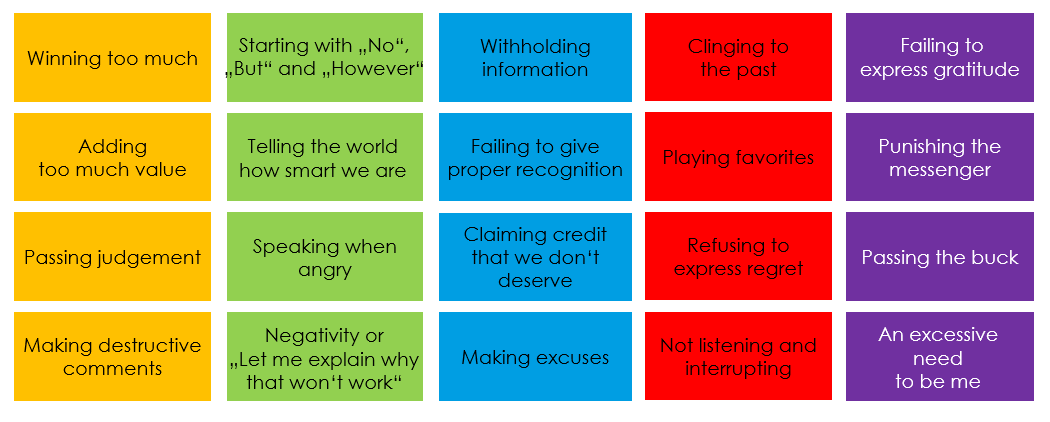The 20 tics highlight the most common quirks or "tics" that leaders use to rob themselves of their own potential. If you consciously turn off one or more of the tics listed below, you will release unimagined potential.

The 20 tics that prevent leaders from
exploring their full potential
Pick out the tics that best suit you from the list and think about what the consequences are for the people around you when you apply then. Then try to consciously eliminate these tics, perhaps with the help of the feedforward method. If you do not find what you are looking for, think about your own tics. You will be amazed at how much you gain strength!
The need to win at all costs and in all situations – when it matters, when it doesn’t and when it’s totally beside the point.
The overwhelming desire to add our two cents to every discussion.
The need to rate others and impose our standards on them.
The needles sarcasms and cutting remarks that we think make us sound sharp and witty.
The overuse of these negative qualifiers which secretly tell everyone: “I am right. You are wrong.”
The need to show people we’re smarter than they think we are.
Using emotional volatility as a management tool.
The need to share our negative thoughts even when we’re not asked.
The refusal to share information in order to maintain an advantage over others.
The inability to praise and reward.
The most annoying way to overestimate our contribution to any success.
The need to reposition our annoying behavior as a permanent fixture to people excuse us for it.
The need to deflect blame away from ourselves and onto events and people from our past; a subset of blaming anybody else.
Failing to see that we are treating someone unfairly.
The inability to take responsibility for our actions, admit we’re wrong, or recognize how our actions affect others.
The most passive-aggressive form of disrespect for colleagues.
The most basic form of bad manners.
The misguided need to attack the innocent who are usually only trying to help us.
The need to blame everyone but ourselves.
Exalting our faults as virtues simply because they’re who we are.